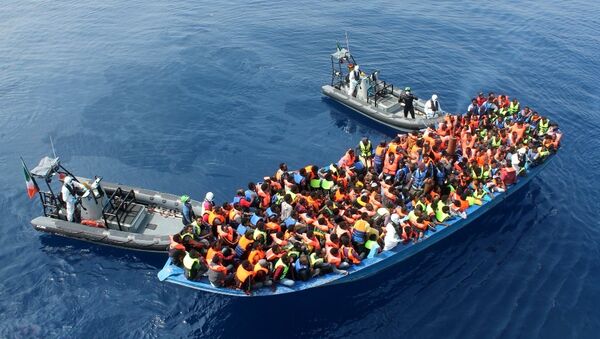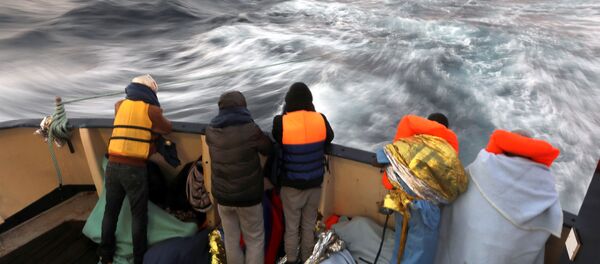Sputnik Italy discussed the issue with Giuseppe Paccione, an expert on migration and European law who carefully examined the text of the February 2 memorandum.
“Enforcing a blockade inside a country’s territorial waters requires official permission by that particular country. As far as I know, Libya has not granted such a permission to ships operating in international waters as part of Operation Sophia to combat the illegal trafficking of migrants to Europe,” Giuseppe Paccione said.
He added that Italy will have to help train, finance and equip Libyan coast guards, set up a network of migrant accommodation centers and to repatriate those who are not covered by the 1951 Geneva Convention on the status of refugees.
“Right now Italy wants to sign bilateral agreements to send back those who have no refugee status. The problem is, however, that the Libyan government does not control some of its coastal areas human traffickers use to send their ‘clients’ to Europe. The memorandum could help deal with illegal migration and stabilize the situation in Libya,” Giuseppe Paccione noted.
He added that even though European Council President Donald Tusk said that the EU was able to stop the flow of migrants crossing the Mediterranean, Europe lacks a concerted migration policy.
“The only things Europe is united on are currency and taxes, not migration. The Western European countries are ready to set up migrant accommodation centers in order to stop the flow of refugees coming in from Libya. But this will not be easy,” Paccione observed.
With France, Austria, Germany, Greece, Spain and Turkey having closed their borders, the Mediterranean Sea remains the only route they can now use to get to Europe.
“Many in Italy refuse to let in any more migrants and they have every reason to do so because many people here are going without a job. I think that
He added that, in keeping with the Geneva Convention, countries should first and foremost accept people who are persecuted for political, ethnic and ideological reasons, not the so-called “economic migrants.”
“It is up to a sovereign and independent country to decide whether a person can be allowed to stay on its territory or not,” Giuseppe Paccione emphasized.
The European Union will face another wave of migrants coming from Africa across the Mediterranean next spring, unless agreements like the deal with Turkey are made with the countries of northern Africa, Maltese Prime Minister Joseph Muscat warned.
The European Union has been struggling to manage a massive refugee crisis which escalated in 2015 with hundreds of thousands of people form the Middle East and North Africa seeking asylum in the EU member states.
Preliminary Frontex data for 2016 suggests that 182,500 people crossed the EU border, with the major drop attributed to the EU-Turkey deal on migrants.
The figure contrasts sharply with the spike in migrant deaths. According to the International Organization for Migration, over 5,000 migrants died attempting to cross the Mediterranean Sea in 2016, which makes it the most deadly year on record for the Mediterranean migration route.
Never miss a story again — sign up to our Telegram channel and we'll keep you up to speed!







